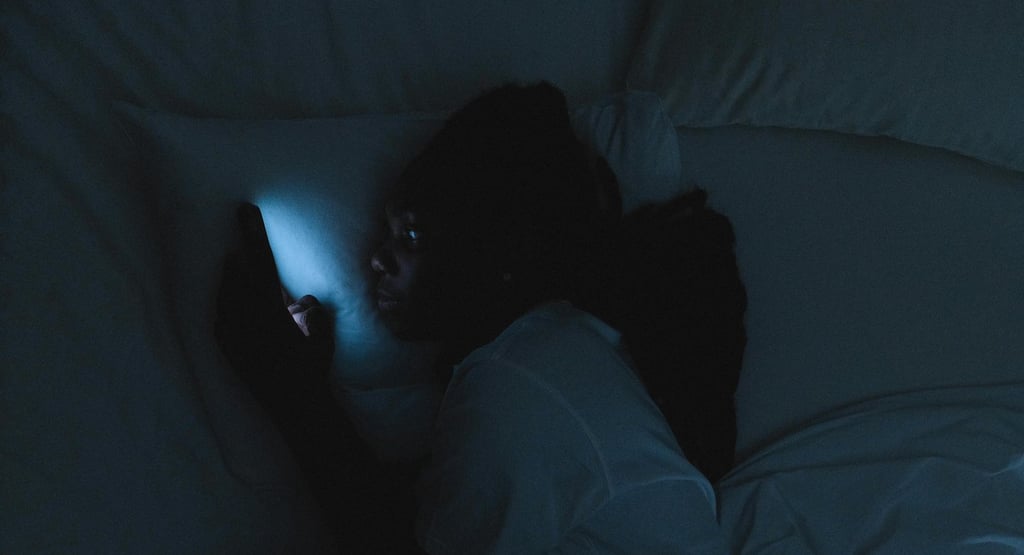Simple Strategies for Better Sleep
Discover practical habits for better sleep that can boost energy, mood, and discipline for adults, teens, and kids. Learn effective sleep strategies to improve everyday life.
BODYMIND


Sleep is one of those things we all swear we’re going to take seriously… and then don’t. We stay up late, scrolling our way into stupidity or binging a show, then wake up foggy, telling ourselves “tonight will be different,” only to repeat the cycle like it’s part of our personality. But good sleep isn’t a luxury. It’s one of the closest things we have to an actual superpower. It sharpens your thinking, steadies your emotions, repairs your body, and keeps you from turning into a gremlin by 2pm. And yes, it matters for everyone in the house. If one person sleeps better, the whole family ecosystem improves.
Most of us underestimate just how much sleep governs everything. Your brain clears out its own junk files when you sleep. Like a built-in cleaner. A 2017 review in Nature Reviews Neuroscience talks about how sleep boosts learning, memory, emotional stability - pretty much every function we rely on to not fall apart. And if you want a book that will scare you straight into fixing your habits, Matthew Walker’s “Why We Sleep” makes it painfully clear that chronic sleep deprivation eats away at your health, mood, focus, and even lifespan. It’s a great read and a real eye opener on the impacts of poor sleeping habits.
But sleep is personal. What works for your teenager won’t work for your six-year-old, and what works for you definitely won’t work for your partner who can somehow fall asleep mid-sentence. The trick is rhythm. Not perfection. Rhythm. A few small habits repeated consistently - like every other part of Discipline Rewired.
For adults, the biggest obstacle is usually ourselves. We know exactly what ruins our sleep and somehow do it anyway. So, the fix is simple, not easy: wind down. Take fifteen minutes and stretch a bit, breathe properly, read something that isn’t glowing. Nothing inspirational. Something gentle or boring. Put your phone on charge across the room - there’s real science behind this; the Sleep Health Foundation points out that screens not only blast you with blue light but also keep your brain alert long after you close the app. And make your room cold. Around 18–20°C. If you’re sweating under the covers, you’re fighting biology. Apps like Calm, Headspace, and Pzizz are solid options if you need help switching your brain off (though there may be some costs involved). None of them are magic, but they’re better than doom-scrolling until you forget who you are. You could try playing brown noise while you try and drift off - it's like giving your brain a soft, heavy blanket. Deeper and smoother than white noise, it masks background sounds without that sharp, hissing edge. That low, consistent hum gives your nervous system something steady to anchor to, which helps quiet racing thoughts and settle the body. A lot of people find it calms anxiety quicker, makes falling asleep easier, and keeps them asleep longer because sudden environmental noises get drowned out.
Teenagers are a different beast. Their body clocks run late on purpose. Melatonin hits them later, which is why they turn into night owls and then can’t function in the morning. Fighting that biology doesn’t work. Working with it does. Let their wind-down routine start later, but make it consistent. Get them out into the morning sun - even ten minutes helps reset their internal clock. Morning sun is basically nature’s “control-alt-delete” for the brain. And get them off high-intensity activities late at night - gaming, frantic social chats, or late assignments. Their heads are busy enough. Teaching them to journal before bed (“empty the mental junk drawer”) makes a huge difference. If they prefer something digital, Insight Timer is a good free option for quick guided relaxation that doesn’t feel forced or cheesy.
Smaller kids though, they run on ritual. A predictable flow. Bath, story, dim lights, sleep. Same order every night. Kids feel safe when things are familiar, and safety equals calm. No sugar or screens before bed, because that’s basically asking for chaos. Warm lamps help too - harsh overhead lights tell their brain it’s still playtime. If your kid resists sleep like it’s a personal attack, give them small choices: which stuffed toy sleeps first, what story they want, what colour the night light is. Small bits of control = big co-operation.
And the whole family benefits from shared habits. You dim the house lights together. You shut down screens at a certain time. You do one calming thing as a household - stretching, laying clothes out for tomorrow, listening to soft music, having a quiet chat, whatever sets the tone and works for you. Households run smoother when the night isn’t chaotic. Calm evenings create calm mornings. And mornings can make or break a day.
If you’re one of those people with a racing mind at night, try a five-minute “brain dump” before bed. Straight up empty your head onto paper (or the notes app in your blue-screen filtered phone). Let it be messy. It can be nonsense. I used to write poems to download my thoughts at night – though I can’t really recommend that as me wanting to perfect my little rhyme was often counter-productive to catching some Z’s. Pair your note taking with slow breathing - four seconds in, six seconds out - and you’re hacking your nervous system back into neutral. If you need help with this, the State app uses visual breathing cues that are surprisingly soothing.
If you’re the type who wakes at 3am and can’t get back to sleep, don’t lie there wrestling with your pillow like it insulted your family. Get up. Sit somewhere dim. Read something boring. When your eyes start to drop, go back to bed. If you lie awake for too long, your brain starts linking “bed” with “stress,” and that’s the last thing you need.
The easiest way to start improving your sleep – tonight - is to pick one habit. Just one. Not a full overhaul. Dim the lights early. Or charge your phone outside the bedroom. Or read for ten minutes instead of scrolling. Or pick a consistent wake-up time. Then tomorrow, add another tiny thing. Momentum is everything. This isn’t about becoming some perfect Zen sleeper; it’s about giving yourself a fighting chance at feeling like a functioning human again. Better sleep leads to better thinking, better moods, better decisions, better parenting, better training, better everything.
Fix your nights and your days follow. It’s one of the simplest ways to upgrade your entire life – it just takes a bit of discipline, rewired.
Where to start?
Start tonight by choosing one small habit and committing to it - dim the lights early, put your phone out of reach, breathe slowly, read something gentle or write down your thoughts instead of scrolling. That’s it. One thing. Let it be the first crack in the old pattern. Tomorrow, stack another. You don’t need perfection, you just need momentum. Rewire your nights with simple, repeatable actions and watch your days shift with them. Better mood, better patience, better energy, better discipline. It all starts with giving yourself permission to slow down and actually rest. You’ll thank yourself tomorrow.


